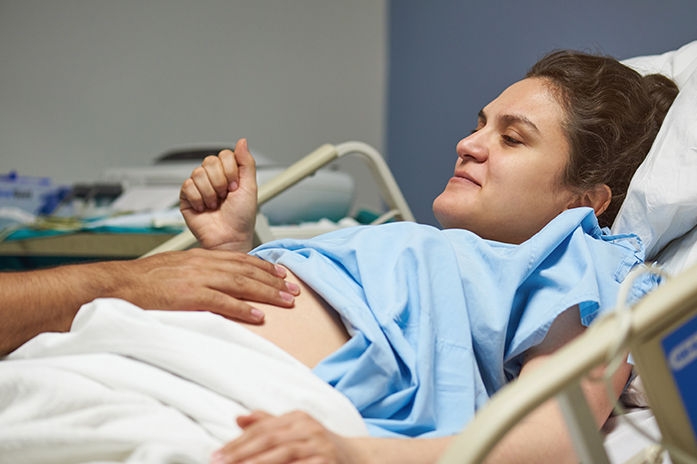Amniocentesis is a procedure that involves the insertion of a hollow needle through the abdominal wall into the amniotic sac. An ultrasound helps guide the doctor through this process. To help ease discomfort, you will be swabbed with anaesthetic, and the test only takes about 30 seconds. A sample of amniotic fluid is taken and sent away for testing.
Will I need an amniocentesis?
A doctor might recommend amniocentesis if they think the mother may be at higher risk of delivering a child with a developmental or genetic abnormality. Such risk factors include:
- A family history of genetic disorders (from mother or partner)
- later-in-life pregnancies (37+)
- The abnormal result from a serum screen.
Discuss with your health professional if this test is for you.
What can amniocentesis detect?
Amniocentesis can return a range of results. Some will be returned within a few days while others may take a couple of weeks. Amniocentesis can detect (genetic disorders if the sample is DNA tested):
- Chromosomal abnormalities such as down syndrome
- Developmental defects such as spina bifida
- Genetic disorders such as cystic fibrosis
- The sex of the foetus
- Musculoskeletal issues
- Blood disorders
Does amniocentesis pose any risks?
Very rarely, yes. Some unlikely complications of amniocentesis can include:
- Infection to either the mother or the foetus
- Spontaneous abortion (very low risk)
- Minor bruising or discomfort to the entry point area
If you experience any side effects at all after leaving the hospital, such as vaginal leakage, high fever or bleeding, seek medical attention straight away.
What happens next?
Amniocentesis test results often come back normal. Should you need further advice or have any concerns, consult with your doctor who can explain your options. Make sure you discuss all avenues so that you have a sound understanding of your choices.
Most women feel relatively normal post-procedure. Either way, take it easy for a few days! Extra rest never hurts a Mumma-to-be.
*The above should not be considered a substitute for professional medical advice. Always seek the advice of trained medical professionals.



